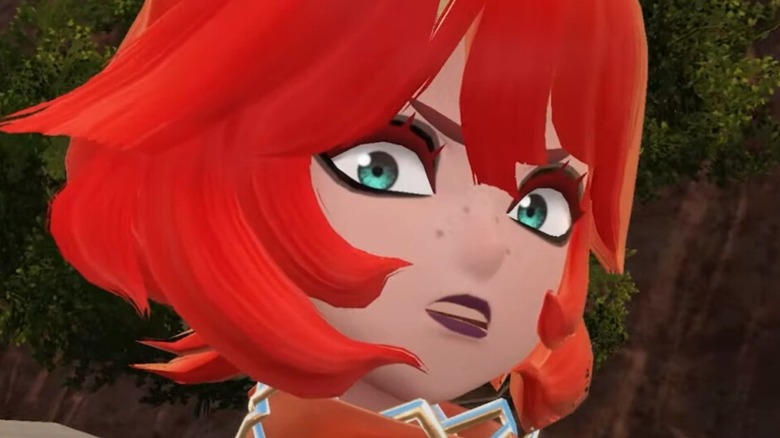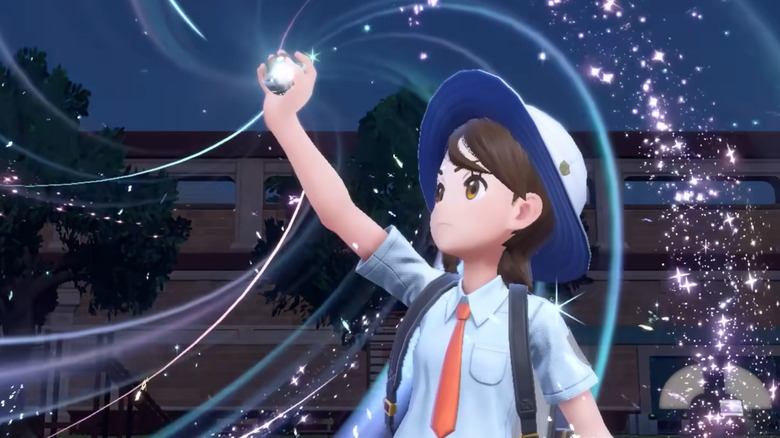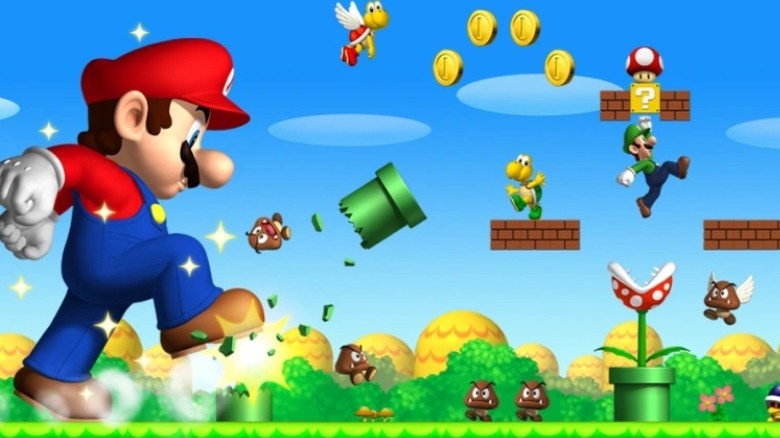Legal Expert Tells Us Why Nintendo Is So Strict About Fan Mods
Creating mods is often a way for gamers to add and share improvements that they want to see in the games they love, but it's always existed in a bit of a legal gray area. Some developers and game directors, like Bethesda's Todd Howard, are open to modders tinkering with their games, but others are notoriously steadfast in their insistence against unofficial mods of any kind. Nintendo is particularly well known for zealously guarding its intellectual property, serving copyright strikes to YouTubers posting Nintendo soundtracks and filing multi-million dollar lawsuits against those who would modify its games and hardware for profit.
Recently, Nintendo and Game Freak released "Pokémon Scarlet" and "Violet," and while many critics have found some of the gameplay improvements to be worthwhile, the technical performance of both versions of the game has been a sticking point. They are both rampant with glitches and struggle to maintain acceptable framerates, leading many players to seek refunds in light of the games' poor quality. While the first mod for "Scarlet" and "Violet" was preoccupied with getting rid of the games' Ed Sheeran song, other fans are working to fix the their framerate issues via mods (on PC, anyway). With all of this activity, gamers are talking yet again about how protective Nintendo is when it comes to mods being released for public consumption.
SVG reached out to Los Angeles-based attorney Tre Lovell, owner of The Lovell Firm, to ask about this very topic.
Why Nintendo doesn't like mods
As Tre Lovell explained to SVG, Nintendo likely has a very clear reason for actively targeting fan-made mods when other gaming companies seem to be more lenient: Nintendo's primary motivation is going to be to protect its brand identity. Allowing people to modify "Pokémon" games to make them perform better may seem harmless at a glance, but allowing any modders to alter Nintendo properties might open the door to future mods that could damage the company's reputation. "Nintendo would have to be concerned if too many mods crop up, to the point where consumers are unaware that the video game their children are playing is a product of Nintendo or is an altered version of that product, with potentially offensive content," Lovell said.
Lovell then compared Nintendo to someone who owns private property, saying that allowing a few people to walk through its land might not be an issue, but constant trespassing would constitute a major problem. "If over many years people keep walking across that field to the point where it becomes a trail, then the property owner has lost some legal right to that part of their property." Likewise, Nintendo might have a harder time defending its IP from more insidious mods if the company establishes a precedent of allowing people to alter its games at all. Lovell stated, "[Nintendo] has to jealously guard its games in order to preserve the right to protect its intellectual property."
What Nintendo might do about mods
SVG also asked Lovell what legal actions Nintendo might pursue in order to protect its properties. "Nintendo can issue a cease and desist letter to whoever creates a modification to one of its video games," Lovell said. "And if that doesn't succeed, Nintendo always has the option to file a lawsuit." As fans have seen, that has certainly happened in the past.
Lovell noted that because Nintendo is a major name in gaming, it has more to gain by being restrictive with mods than it does by allowing them to propagate. "Once a fan mod is out there that is confusing the public as to its source, or is sub-standard [and] disparaging Nintendo's brand, Nintendo can face real economic harm," Lovell explained.
It still remains to be seen whether or not Nintendo will take legal action against the newest "Pokémon" mods, but Lovell's insights help to explain why Nintendo is so adamant to keep mods away from its games — even if some fans are totally on board for them.



